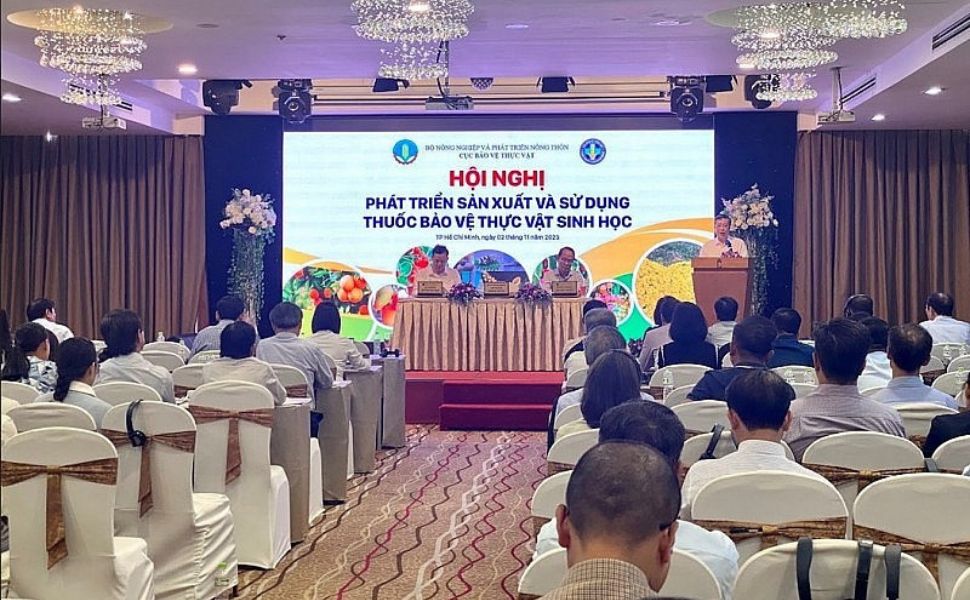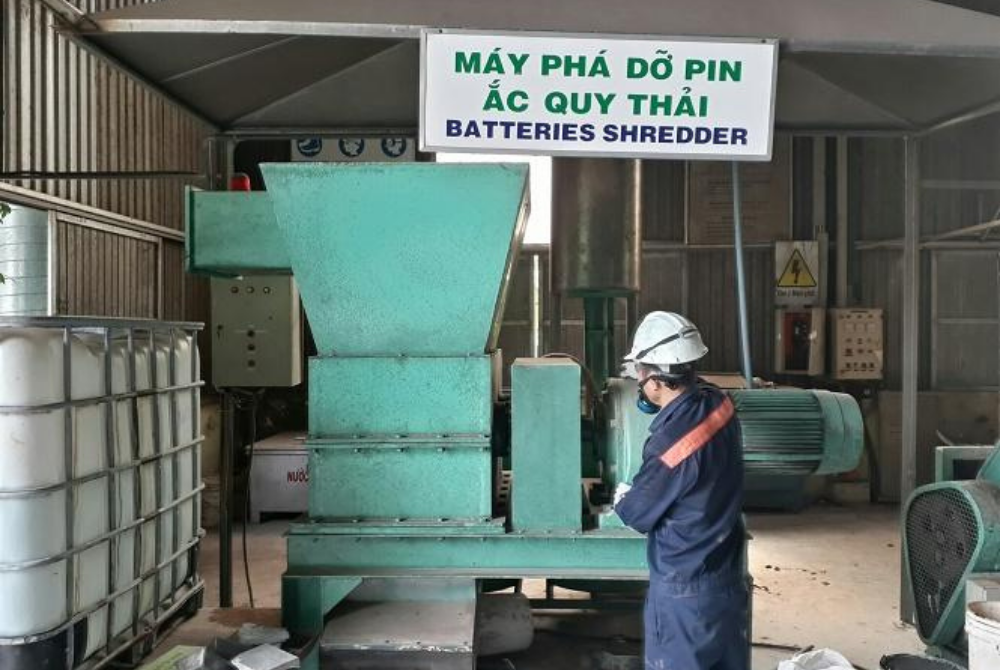Encourage the development and use of biological pesticides.
November 2, 2023, in Ho Chi Minh City. The Plant Protection Department (VPD) hosted a conference titled "Development of production and use of bio-pesticides" in both live and online formats, chaired by the Minister of Agriculture and Rural Development.
In agricultural production, pesticides are one of the essential supplies, contributing to protecting and improving crop productivity and determining the value and quality of agricultural products. However, misuse can cause many unwanted consequences, affecting human health and the environment.
Therefore, using bio-pesticides is one of the sustainable solutions, both protecting the environment and ecosystem and being safe for users, not leaving drug residues in agricultural products, ensuring quality and meeting export needs.
At the Conference, Deputy Minister Hoang Trung stated that "The orientation for the growth of pesticide production and usage is vital and has been emphasised in agriculture sector initiatives. The policy is to use bio-pesticides more extensively." By 2025, the Ministry of Agriculture and Rural Development intends to increase the number of biological pesticides by 30%, the number of bio-pesticides used by 20%, the model and area of bio-pesticide use by 3-5%, and the number of enterprises innovating bio-pesticide production technology by 15% over today.

Overview of the conference
To concretise bio-pesticide policy, the Plant Protection Department prepared and implemented the program "Development of production and use of bio-pesticides for the period 2021-2025". During the program's more than 02 years of implementation, the agricultural sector has achieved much positive awareness and responsibility among production and commercial groups.
Our country currently has 810 types of bio-pesticides with 257 active ingredients, including biological pesticides that are microorganisms (about 13%), bio-pesticides of natural origin extracted from herbs (about 24%), and bio-pesticides that belong to the biochemical group (about 63%). These medications suppress the most dangerous pathogens found in various crops. There are 99 pesticide package businesses around the nation, 85 of which produce approximately 30 distinct types of finished bio-pesticides.
There are several sophisticated and safe forms for humans, including water-dispersible granules, dispersible oils, water-soluble concentrates, and granules. Furthermore, popular biological pesticide manufacturing methods around the globe have been patented, manufactured, and utilised, such as the creation of nano bio-pesticide medications from herbs., creating biological pharmaceuticals including microorganisms, drugs of viral origin or nematode origin...
Imported bio-pesticides have gradually grown during the previous 03 years. Notably, the usage of bio-pesticides is expanding. Local data reveals that the average total quantity of pesticides used in the country is decreasing during the next three years, from 3.81 kg/ha in 2020 to 3.19 kg/ha in 2022. For instance, the average amount of biological pesticides used nationally has remained steady and is expected to rise from 16.67% in 2020 to 18.49% in 2022.
Despite many promising outcomes, the research and application of bio-pesticides is now fraught with obstacles and challenges. There are now no explicit policies to stimulate research, capital assistance, and investment in the development of industrial, commercial, and biochemical applications.
Furthermore, individuals continue to use chemical pesticides because of their significant efficacy, fast effect, and inexpensive cost. Bio-pesticides are infrequently used due to their expensive cost, limited storage period, narrow spectrum of action, specificity, slower efficacy than chemical pesticides, and instability caused by chemical exposure.
Deputy Minister Hoang Trung concluded the Conference by stating that the agriculture sector would examine and propose specific policies to promote and assist organisations and people in engaging in production growth. Furthermore, the use of bio-pesticides streamlines administrative processes. Improve instructions on the use of bio-pesticides in communities. Furthermore, fostering ties in biological medication research and development between corporations and institutions, colleges, or science and technology enterprises allows for the implementation of public-private collaboration programs.
To sum up, funding for biological pesticide research, development, and manufacturing initiatives must be requested and prioritised. Encourage international collaboration on biopesticides and make use of developed nations' resources, expertise, and competence, as well as international agencies such as the FAO and WHO. Simultaneously, digitally alter, build, and digitise infrastructure. Pesticide database, from central to local levels, to assist local governments, companies, and trade facilities.
Source: http://sonnptnt.baria-vungtau.gov.vn












